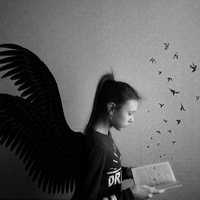
Вопрос задан 30.04.2019 в 19:19.
Предмет Українська мова.
Спрашивает Кужугет Айгелина.
Побудувати структурну схему речення, зробити повний синтаксичний розбір (підкреслити члени речення,
надписати над кожним словом частини мови, дати загальну характеристику всій конструкції і компонентам як простим реченням). Не ламай калину коло хати, Бо вона заплаче наче мати. І впадуть на трави, на шовкові, Серця сльози колискові. 0
0
 0
0
Ответы на вопрос
 Внимание! Ответы на вопросы дают живые люди. Они могут содержать ошибочную информацию, заблуждения, а также ответы могут быть сгенерированы нейросетями. Будьте внимательны. Если вы уверены, что ответ неверный, нажмите кнопку "Пожаловаться" под ответом.
Внимание! Ответы на вопросы дают живые люди. Они могут содержать ошибочную информацию, заблуждения, а также ответы могут быть сгенерированы нейросетями. Будьте внимательны. Если вы уверены, что ответ неверный, нажмите кнопку "Пожаловаться" под ответом.

Отвечает Родиков Алексей.
Перше речення розповідне, неокличне, складносурядне речення, з єднане протиставним сполучником, складається з двох предикативних частин. Перша предикативна частина - односкладна, поширена, повна, неускладнена, підмет простий дієслівний, додаток прямий, обставина місця. Друга предикативна частина - двоскладна, непоширена, повна, ускладнена порівнянням, присудок простий дієслівний, підмет простий, виражений іменником.
 0
0
 0
0

Отвечает нейросеть ChatGpt. Будьте внимательны, ответы нейросети могут содержать ошибочные или выдуманные данные.
Structural Analysis of the Sentence
Sentence: "Не ламай калину коло хати, бо вона заплаче наче мати. І впадуть на трави, на шовкові, серця сльози колискові."
Parts of Speech and General Characteristics
1. Не - adverb, negative particle, used to negate the action of the verb. 2. ламай - verb, imperative form of the verb "ламати" (to break), addressing the second person singular. 3. калину - noun, accusative case, singular form of "калина" (guelder-rose), the direct object of the verb "ламай." 4. коло - preposition, indicating location or proximity, followed by the noun "хати." 5. хати - noun, genitive case, singular form of "хата" (house), indicating the location of the action. 6. бо - conjunction, introducing a cause or reason. 7. вона - pronoun, nominative case, singular form of "вона" (she), referring to the guelder-rose. 8. заплаче - verb, future tense, third person singular form of "плакати" (to cry), indicating the action of the guelder-rose. 9. наче - conjunction, comparative particle, used to introduce a comparison. 10. мати - noun, nominative case, singular form of "мати" (mother), compared to the guelder-rose. 11. І - conjunction, coordinating conjunction, connecting two independent clauses. 12. впадуть - verb, future tense, third person plural form of "падати" (to fall), indicating the action of the hearts. 13. на - preposition, indicating direction or location. 14. трави - noun, accusative case, plural form of "трава" (grass), the direct object of the verb "впадуть." 15. на - preposition, indicating direction or location. 16. шовкові - adjective, accusative case, plural form of "шовковий" (silken), describing the grass. 17. серця - noun, nominative case, plural form of "серце" (heart), the subject of the verb "впадуть." 18. сльози - noun, nominative case, plural form of "сльоза" (tear), describing the hearts. 19. колискові - adjective, accusative case, plural form of "колисковий" (lullaby), describing the tears.Overall Structure and Components
The sentence consists of two imperative clauses connected by the coordinating conjunction "І." The first clause instructs the listener not to break the guelder-rose near the house, providing a reason for this instruction. The second clause describes the consequence of breaking the guelder-rose, stating that the hearts will fall on the grass and silken, shedding lullaby tears.This construction can be characterized as a complex sentence with two imperative clauses and a cause-and-effect relationship between them. The sentence contains a variety of parts of speech, including adverbs, verbs, prepositions, conjunctions, nouns, and adjectives, contributing to its rich and expressive structure.
 0
0
 0
0
Топ вопросов за вчера в категории Українська мова
Последние заданные вопросы в категории Українська мова
Предметы
-
Математика
-
Литература
-
Алгебра
-
Русский язык
-
Геометрия
-
Английский язык
-
Химия
-
Физика
-
Биология
-
Другие предметы
-
История
-
Обществознание
-
Окружающий мир
-
География
-
Українська мова
-
Информатика
-
Українська література
-
Қазақ тiлi
-
Экономика
-
Музыка
-
Право
-
Беларуская мова
-
Французский язык
-
Немецкий язык
-
МХК
-
ОБЖ
-
Психология
-
Физкультура и спорт
-
Астрономия
-
Кыргыз тили
-
Оʻzbek tili




















